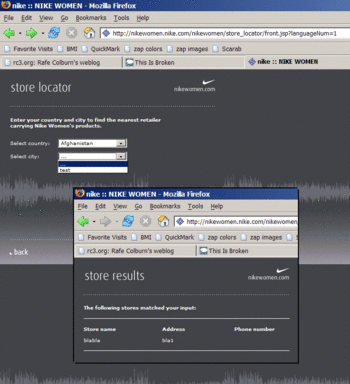In the early 1990s, my father-in-law was battling cancer. My father-in-law had been in business for himself, and had suffered from heart disease for many years. This combination of circumstances had the unfortunate result that he could not get health insurance–at any cost. Also, due to his health problems, he had lost most of his businesses and was not in very good financial shape. However, due to the generosity of the citizens of Bexar County, Texas, via a county health program, my father-in-law received treatment for his cancer, even though he could not pay for it all himself. The care he received wasn’t top-notch, but he wasn’t left to die, either.
At the same time my father was suffering from cancer, near the beginning of Bill Clinton’s first term as president, his wife Hillary Rodham Clinton took on the task of health care reform. I vividly remember the huge battle over the issue and over the First Lady tackling such an important issue.
One tactic that the Clintons’ opponents employed was to scream ‘They want socialized health care! Look at what a disaster it is in Canada and England!” The claim was, of course, false–the Clintons were not trying to institute true socialized health care (where the government owns all health care facilities)–but it struck a nerve with a lot of people and ultimately contributed to the failure of Ms. Rodham Clinton’s efforts.
At that time, I enjoyed pointing out to opponents that we already, in fact, had (and still have) socialized medicine on various levels in the US. In addition to the oodles of local programs, such as the county program serving my father-in-law, we also have several very large federal socialized health care programs, among them: Veteran’s Administration, Medicare, Medicaid. In fact, the VA runs a ‘real’ socialized health care system, in that it owns its own hospitals and clinics, employs the doctors, etc. Medicare and Medicaid, on the other hand, are government-run systems for paying for mostly private health care.
My comments stopped more than a few opponents in their tracks.
In a new New York Times column, Paul Krugman gives us an update on this issue. First, he compares what we spend on health care:
In 2002, the latest year for which comparable data are available, the United States spent $5,267 on health care for each man, woman and child. Of this, $2,364, or 45 percent, was government spending, mainly on Medicare and Medicaid. Canada spent $2,931 per person, of which $2,048 came from the government. France spent $2,736 per person, of which $2,080 was government spending.
Amazing, isn’t it? U.S. health care is so expensive that our government spends more than the governments of other advanced countries, even though the private sector pays a far higher share of the bills than anywhere else.
Then Krugman summarizes what we receive in each country, respectively, for that expenditure:
What do we get for all that money? Not much.
Most Americans probably do not know that we have substantially lower life-expectancy and higher infant-mortality figures than other advanced countries. It would be wrong to jump to the conclusion that this poor performance is entirely the result of a defective health care system; social factors, notably America’s high poverty rate, surely play a role. Still, it seems puzzling that we spend so much, with so little return.
A 2003 study published in Health Affairs (one of whose authors is my Princeton colleague Uwe Reinhardt) tried to resolve that puzzle by comparing a number of measures of health services across the advanced world. What the authors found was that the United States scores high on high-tech services – we have lots of MRIs – but on more prosaic measures, like the number of doctors’ visits and number of days spent in hospitals, America is only average, or even below average. There is also direct evidence that identical procedures cost far more in the United States than in other advanced countries.
The authors concluded that Americans spend far more on health care than their counterparts abroad – but they do not actually receive more care. The title of their article? “It’s the Prices, Stupid.”
When you compare the U.S. to these countries with ‘socialized’ health care, we don’t stand up so well, do we?





